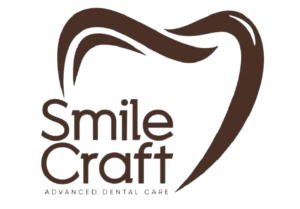Pregnancy and Oral Health
Old wives tales have linked pregnancy and poor dental health – for example, ‘you lose a tooth for each child’. Recent research has shown that pregnancy does cause changes in the mouth that may put your oral health at risk.
During pregnancy, you are more likely to have problems with your teeth or gums. If you have an infection in your teeth or gums, the chance of your baby being premature (born early) or having low birth weight may be slightly higher than if your teeth and gums are healthy. How you look after your teeth and gums can affect your baby’s health as well as your own.
Why are pregnant women more at risk for oral health issues?
There are 2 major reasons women can have dental problems during pregnancy
- Pregnancy gingivitis – During pregnancy, changes in hormone levels allow bacteria to grow in the mouth and gums more easily, gums are swollen red that bleed easily when brushing and may be tender. This makes the periodontal disease more common when you are pregnant.
- Nausea and vomiting – Pregnant women may have nausea and vomiting or “morning sickness,” especially in the first trimester. The stomach acids from vomiting can also break down the enamel coating of the teeth hence increasing the risk of a cavity.
What are the signs and symptoms of dental problems during pregnancy?
Signs and symptoms of dental problems include:
- Bad breath
- Loose teeth
- Mouth sores or lumps on the gums
- New spaces between your teeth
- Receding gums (when your gums pull away from your teeth so you can see roots of your teeth) or pus along your gumline
- Gums that are red, swollen, tender, that bleed easily
- Toothache or other pain
If you have any pain or swelling, visit your dentist right away.
When to schedule a dental appointment during pregnancy?
A dental check-up early in your pregnancy will help you to make sure that your oral health is at its best. A dental visit before you plan to become pregnant is even better so that any decay or other problems can be treated beforehand.
If dental work is done during pregnancy, the second trimester is ideal. If non-emergency dental work is needed during the third trimester, it is usually postponed until after the birth. This is to avoid the risk of premature labour and prolonged time lying on your back.
Emergency dental treatment such as root canal treatment or extraction of an infected tooth can be done safely with proper precaution to keep you and your baby healthy. Do let your dentist know the nature of your pregnancy in your initial visit so that treatment plan can be made accordingly for you.
Are dental X-rays safe during pregnancy?
Yes. Dental X-rays are safe during pregnancy. They use very small amounts of radiation, and your dentist covers you with a special apron and collar to protect you and your baby.
Medications used during dental work and pregnancy ?
Most of the medication used in routine dental procedure falls under category B drugs . Category B drugs include prenatal vitamins, acetaminophen and several other medications used routinely and safely during pregnancy. If there is a clinical need for a Category B drug, it is considered safe to use it. Even though it’s safe, drugs should be given only if the potential benefit justifies the potential risk to the fetus.
How can you prevent dental problems during pregnancy?
Get regular Dental checkups before and during pregnancy. They are important so your dentist can find and treat dental problems early and regular teeth cleanings help keep your teeth and gums healthy.

